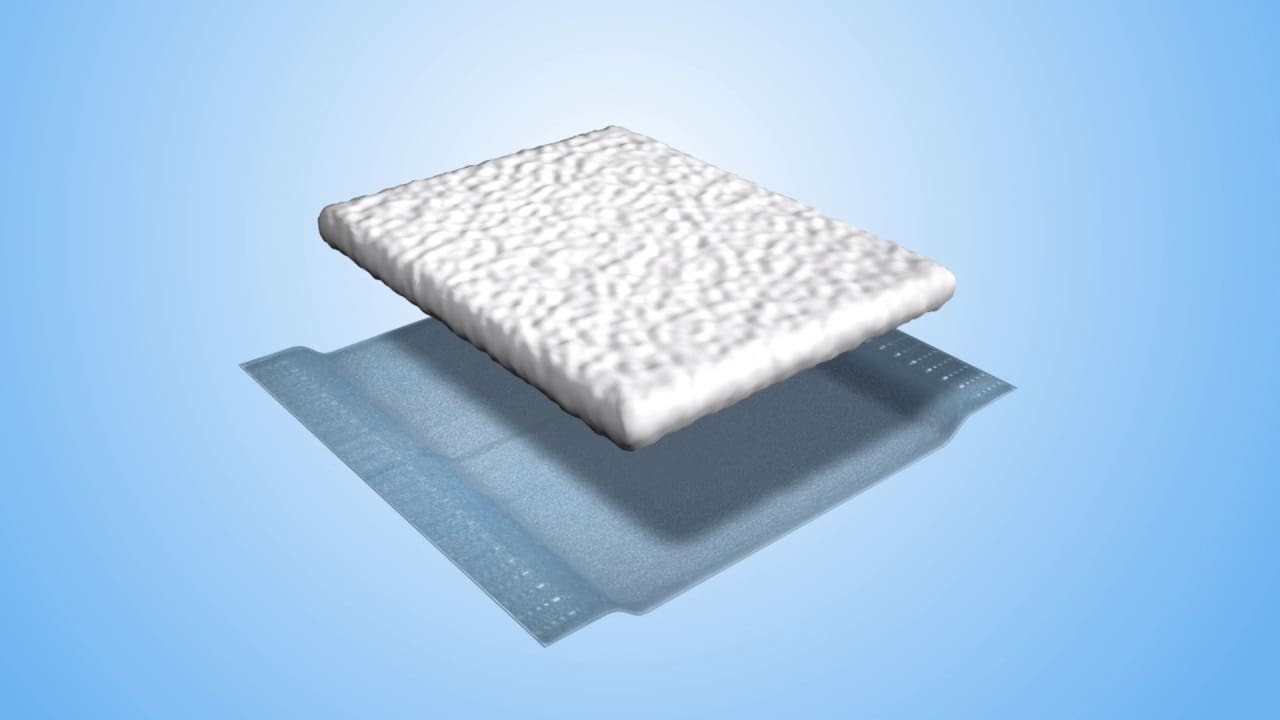Super-absorbent (also known as super-absorbent polymers or SAP) consists of a material which can absorb many times its own weight in aqueous fluids. Super-absorbent fibers absorb 50-150 times their own weight while the diameter increases. The small diameter of the fiber, which is about 30 µm, gives a very high surface area for contact with the liquid. Viscose rayon or cotton without load only absorbs about 30 times, wool 17 times, and polyester 3 times their own weight .The advantage that fibers offer compared to powders is due their physical form, or dimensions, rather than their chemical nature. Also, the fiber surface is not smooth. It has a crenelated structure with longitudinal grooves. These are beneficial in transporting moisture to the surface. The lubricant has also been selected to enhance this wetting effect and results in a very high rate of moisture absorption. Typically, the fiber will absorb 95% of its ultimate capacity in 15 seconds .They are therefore an ideal material for use in products which are designed to contain fluids such as baby diapers/nappies, incontinence products, and feminine hygiene pads and liners .
Super-absorbent material was first produced in the early 1970s in Japan and USA. It was introduced into baby diapers in the early 1980s and later that decade into adult incontinence pads. By the early 1990s, super-absorbent material had become widely used in disposable baby diapers/nappies and incontinence products .The use of super-absorbent materials in fiber form has now become a commercial reality. The majority of super-absorbent material available for today’s absorbent hygiene products market is sold in granular form; some super-absorbent material is also available as a fiber. The granular material is a polymer made up of millions of identical units of sodium acrylate formed into a chain fence like structure. These are then linked to make the material into a three dimensional network. In their dry state, the long polymer chains are coiled. When they absorb liquid, they uncoil and the network expands. The liquid is then stored in the spaces in the molecular network and the material forms a gel which locks the liquid in .
The advantages of super absorbent fibers are as follows:
- They help keep the skin dry. This is done by drawing the liquid away from the skin and absorbing and retaining it in the core of the product. This creates greater comfort for the user.
- They help protect against skin irritation in diaper users by reducing skin wetness. If skin becomes too wet, it is more vulnerable to irritation because the natural balance of the skin, which helps protect against harmful bacteria, can be compromised.
- They help prevent the spread of infections. The containment of fluid in the superabsorbent core reduces leakage. It also reduces the risk of urine mixing with other material and becoming contaminated with microorganisms which can cause the spread of diseases such as gastroenteritis.
- They offer improved quality of life and personal dignity. Many people suffer from a lack of bladder or bowel control as a result of illness, disability, or age. Disposable products with superabsorbent help many of these individuals, and their care givers maintain a quality of life with greater mobility and independence.
BIBLIOGRAPHY:
Pulpandpaper-technology.com. (2019). World of TISSUES. [online] Available at: https://www.pulpandpaper-technology.com/articles/tissues [Accessed 12 Aug. 2019].
ARTICLE BY PRACHI TENDULKAR

